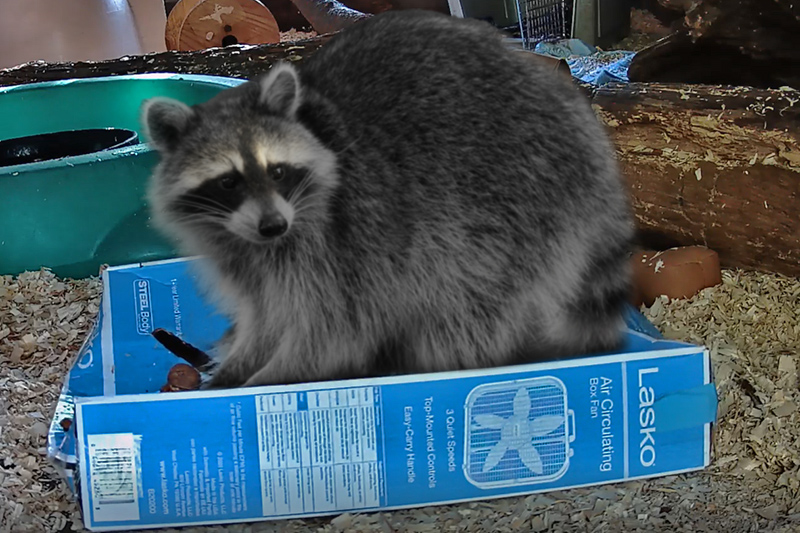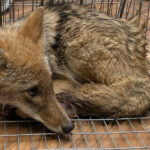This summer, we admitted an adult female raccoon after she had been kept as a pet by a member of the public for a while. We don’t know how long she was kept as a pet or how she was treated in captivity. She was very overweight and unhealthy due to the poor-quality diet she had been fed. Despite being in captivity for an unknown amount of time, she was not friendly with our staff, which gave us hope that she could be “rewilded” and released. Because of her large figure and even larger personality, we affectionately referred to her as Big Betty during her stay with us!
To help her get back in shape, we put her on a “diet” and fed her what an adult raccoon would eat in the wild. This included venison, fish, mice, nuts, seeds, and fruits and vegetables. We also hid her food in creative ways to encourage her to develop foraging skills and build strength. Other enrichment we provided included live fish in a pool for her to catch and placing food under or in objects, so she had to use her keen sense of smell to find it!
Enrichment is a great tool used by wildlife rehabilitators to keep patients’ minds and bodies in good health. It also helped this patient get conditioned for release and build valuable skills she will use in the wild!
After three and a half months of dedicated care by our rehab staff and interns, Big Betty had made significant progress. She had shed some weight and honed her foraging skills, making her ready for release. In late July, she was returned to her natural habitat, much to the excitement of our staff and Big Betty herself!
If you’d like to see the full video of Big Betty using enrichment skills to find her snacks click here!
You can help animals like these by donating to the Northwoods Wildlife Center. We are a 501-c3 non-profit organization that relies on donations to rescue and rehabilitate wildlife that needs our help.


